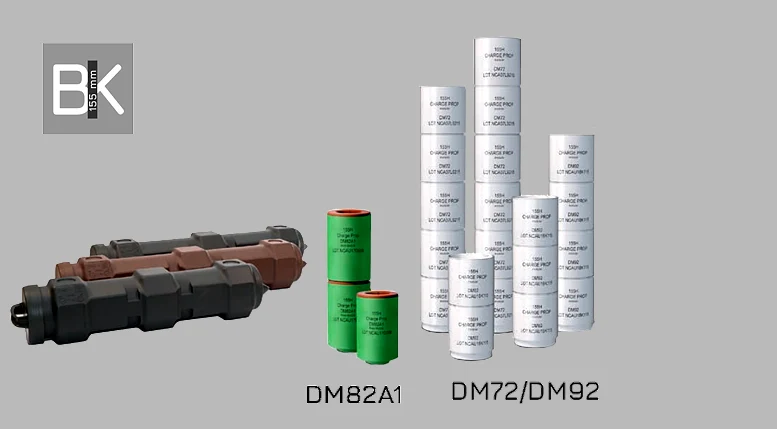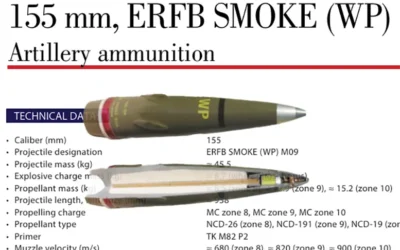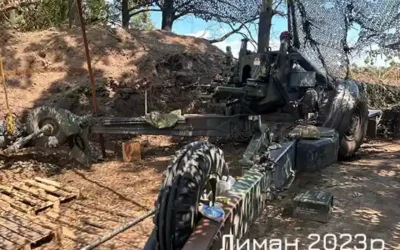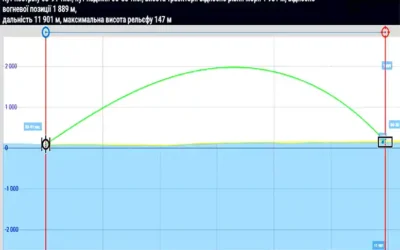
Modular Charge System
MODULAR CHARGE SYSTEM
Video
Demonstration video of the construction and operation of the modular charge system DM72 (DM52)
Modular charge system for propellant charges, demonstrated with DM82, DM72/92/52:
COMPATIBILITY WITH ALL NATO 39 AND 52 CALIBER STANDARDS
The 155-mm artillery modular charge system was developed in close cooperation with Rheinmetall Waffe Munition and was adopted by the German regulatory authority BWB in 1996 for use in all standard NATO 39 and 52 caliber gun configurations with appropriate shells that meet the Joint Ballistic Memorandum of Understanding (JBMoU). The low zone module DM82A1 and the high zone module DM92 have operational characteristics across the entire temperature range from -46°C to +63°C. The modular charge system is in service in over ten user countries (NATO and others) and is exported to other customers. More than 1.5 million modules have been produced and used to date.
GENERAL INFORMATION ABOUT PROPELLANT CHARGES:
Fully complies with JBMoU requirements
Increased range to >40 km with ER shells
Dual-module charging design for low zone DM82A1 and high zone DM72/92 (high stack capacity, improved logistics)
Unique ignition booster design ensures safe ignition and prevents pressure waves and negative pressure dips under all loading and temperature conditions
Low barrel wear and toxicity
Minimal standard velocity deviations at all charge levels
Residue-free combustion
ENVIRONMENTAL ASPECT:
In addition to proven compatibility with multiple weapon systems, the Nitrochemie modular charge system stands out for its environmental reliability and durability under extreme environmental conditions. Extensive logistical and tactical enhanced usage tests were expanded to ensure modes (+35°C to +71°C) and (-37°C to -46°C) climatic cycles.
COMPLIANCE WITH “INSENSITIVE MUNITIONS”:
The modular charge system has been tested to STANAG IM ammunition requirements, including shaped charge impact by M77 submunitions and an 87-mm shaped charge from RPG7. All tests demonstrated standard IV-V reactions.
BALLISTIC REQUIREMENTS FOR 39-CALIBER GUNS (FH70, M109, M777):
Average muzzle velocity of 810 m/s (39-caliber gun, 5 modules, L15A1 shell, 21°C)
Demonstrated system compatibility: FH70, M109, M777A2, AS90
Demonstrated shell compatibility: American M107 family, German DM family, South African Assegai family, Scandinavian Nammo shells, Turkish MOD274, Spanish ER02A1 family, American Excalibur.

KEY FEATURES:
Bi-modular design
Non-toxic, includes copper remover
Low-sensitivity propellant (IM)
Low flame temperature (2670 K)
Energy density 1007 J/g
Heat of explosion 3400 J/g
Barrel wear protection elements
Central igniter
Residue-free combustion
Complies with NATO memorandum – JBMOU
155 mm ERFB Smoke WP extended-range projectile
The 155 mm ERFB Smoke WP projectile is a high-explosive round developed alongside the 155 mm HE ERFB projectiles
Calibration of the aiming devices of the FH70 gun
Calibration of the FH70 gunTo perform the quadrant calibration, you need to: Place the 155-mm self-propelled towed howitzer "FH-70" on a firm surface,...
Range tables for specific projectiles
Range TablesTables of minimum and maximum ranges for the projectiles M107, M110, M483, M485, M549, M795, M825, M864.f Facebook KHMS 88
Sirota Oleg (Georgich) for the Armed Forces of Ukraine / Entropia.com.ua
Share your experience working with 155 mm ammunition.
Comments and suggestions can be sent to: entropiaw@gmail.com
f Facebook
KHMS 88


